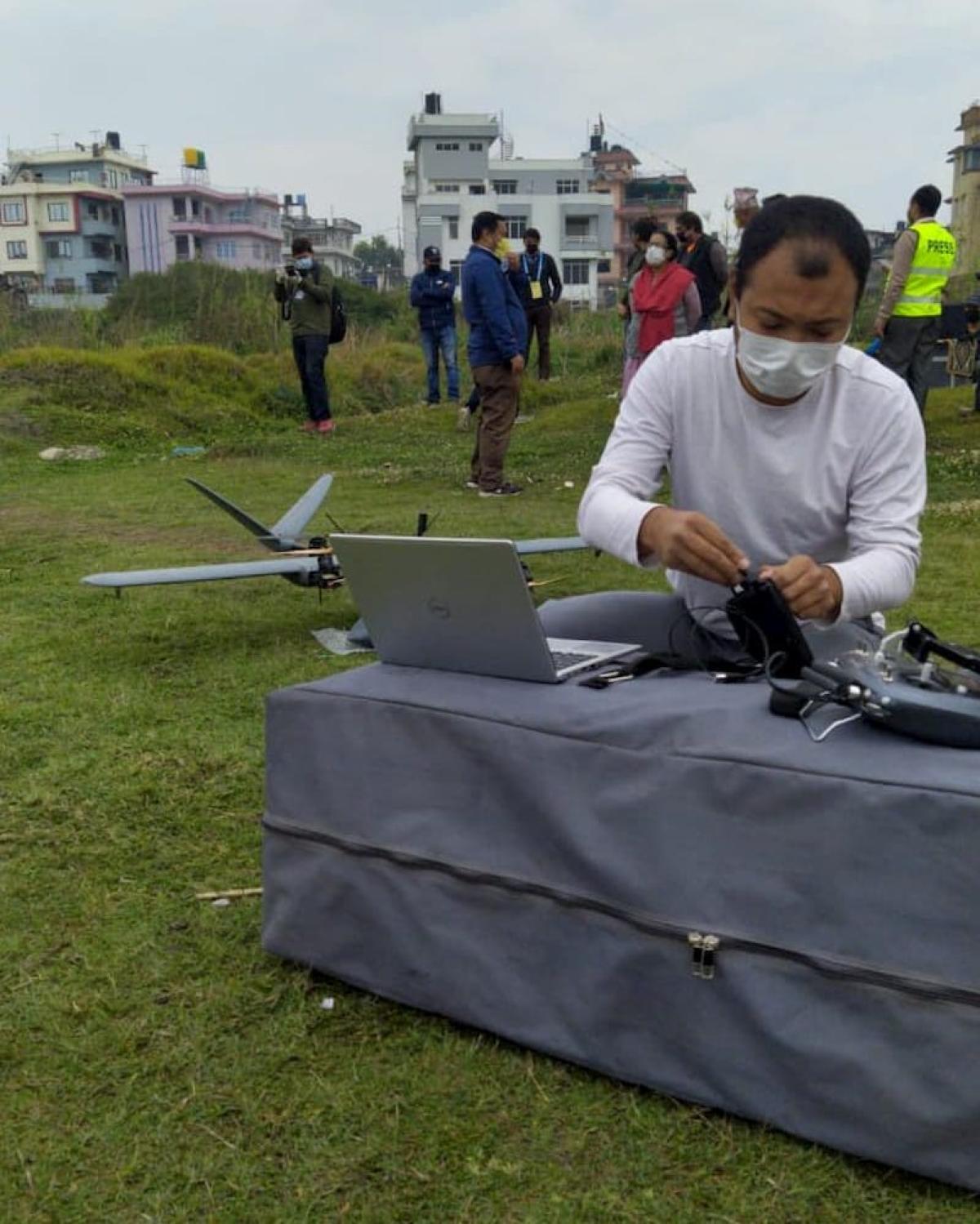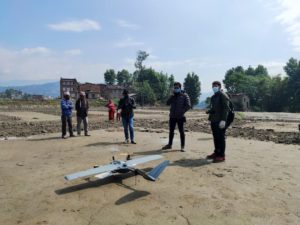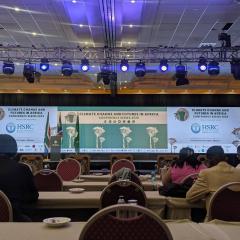
These Flyings Labs Have Won Microgrants to Tackle COVID-19
June 12th, 2020

We launched the FlyingLabs Microgrant Program in April 2019 to support Flying Labs in their concerted efforts to overcome the barriers they face in scaling their work. In April 2020, we launched a new edition of the Microgrant Program specifically designed to support Flying Labs in response to COVID-19. The winners of this new microgrant program are Chile, Malawi, Nepal, and Papua New Guinea Flying Labs.
Chile Flying Labs contribute to response efforts through their second phase of a pilot project using a custom lightweight, 3D-printed drones with long-life battery for telemedicine. This will enable the delivery of medicines and light medical equipment to complete vital checks of patients with chronic diseases who are more vulnerable to COVID-19. For this project, Chile Flying Labs are working with health care representatives as well as technical partners. Flying Labs have been engaged in drone delivery projects around the world since 2016. Learn more here.
Malawi Flying Labs will contribute to mapping and contact tracing efforts. The majority of the Malawian population live in high densely populated areas and are at risk of coming into contact with the virus. Therefore the purpose of the project is to use geospatial data and high-resolution drone maps to support contact tracing for people in high-density informal settlements in peri-urban and rural areas. Geospatial mapping will aid with the mathematical modeling of the spread of corona-virus in Malawi, thereby informing contact tracing exercises, infection and prevention programs, and resource allocation. It will also help responders to understand better the living conditions and sanitary conditions of communities in these places and provide a better predictive picture of the specific locations that are more at risk.

Nepal Flying Labs will directly support local municipalities by deploying a fixed-wing drone to capture high-resolution images of urban districts in the Kathmandu Valley area. These municipalities have repeatedly sought to carry out this mapping over the years. But the bustling international airport in Kathmandu meant that they were unable to secure flight permissions—until now. Nepal Flying Labs and partners are taking advantage of the reduced air traffic, limited physical movement of people, cleaner air, and, therefore, better visibility to push the project forward. While this project will have other outcomes, it will help prompt decisions in policies, regulations, and planning in response to COVID-19. This is part of a project involving private companies, independent consultants, nonprofit organizations, and Kathmandu University.
Papua New Guinea Flying Labs have built and run an afterschool education program named "Coding against COVID-19," focusing on youth's wellbeing. This program introduces young students to aerial drones, digital tools, and algorithms while raising awareness of practices to reduce the transmission of COVID-19 and thus remain safe during the pandemic. PNG Flying Labs recently published a blog post on the outcomes of their "Coding Against COVID-19" program, which this microgrant will help to expand.
Congratulations to all 4 Flying Labs for their successful applications! They will be publishing a blog post at the end of their projects to communicate their impact along with lessons learned and next steps. So stay tuned for more.
Recent Articles

